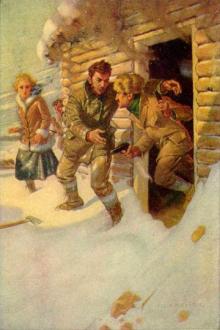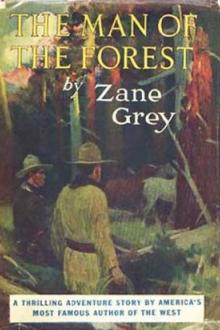Astoria; Or, Anecdotes of an Enterprise Beyond the Rocky Mountains by Irving (top romance novels .TXT) 📗

- Author: Irving
Book online «Astoria; Or, Anecdotes of an Enterprise Beyond the Rocky Mountains by Irving (top romance novels .TXT) 📗». Author Irving
A life of this unsettled and precarious kind is apt to render man selfish, and such Mr. Clarke found the inhabitants of this village, who were deficient in the usual hospitality of Indians; parting with everything with extreme reluctance, and showing no sensibility to any act of kindness. At the time of his arrival, they were all occupied in catching and curing salmon. The men were stout, robust, active, and good looking, and the women handsomer than those of the tribes nearer to the coast.
It was the plan of Mr. Clarke to lay up his boats here, and proceed by land to his place of destination, which was among the Spokan tribe of Indians, about a hundred and fifty miles distant. He accordingly endeavored to purchase horses for the journey, but in this he had to contend with the sordid disposition of these people. They asked high prices for their horses, and were so difficult to deal with, that Mr. Clarke was detained seven days among them before he could procure a sufficient number. During that time he was annoyed by repeated pilferings, for which he could get no redress. The chief promised to recover the stolen articles; but failed to do so, alleging that the thieves belonged to a distant tribe, and had made off with their booty. With this excuse Mr. Clarke was fain to content himself, though he laid up in his heart a bitter grudge against the whole Pierced-nose race, which it will be found he took occasion subsequently to gratify in a signal manner.
Having made arrangements for his departure, Mr. Clarke laid up his barge and canoes in a sheltered place, on the banks of a small bay, overgrown with shrubs and willows, confiding them to the care of the Nez Perce chief, who, on being promised an ample compensation, engaged to have a guardian eye upon them; then mounting his steed, and putting himself at the head of his little caravan, he shook the dust off his feet as he turned his back upon this village of rogues and hard dealers. We shall not follow him minutely in his journey; which lay at times over steep and rocky hills, and among crags and precipices; at other times over vast naked and sunburnt plains, abounding with rattlesnakes, in traversing which, both men and horses suffered intolerably from heat and thirst. The place on which he fixed for a trading post, was a fine point of land, at the junction of the Pointed Heart and Spokan Rivers. His establishment was intended to compete with a trading post of the Northwest Company, situated at no great distance, and to rival it in the trade with the Spokan Indians; as well as with the Cootonais and Flatheads. In this neighborhood we shall leave him for the present.
Mr. M’Kenzie, who conducted the third party from the Wallah-Wallah, navigated for several days up the south branch of the Columbia, named the Camoenum by the natives, but commonly called Lewis River, in honor of the first explorer. Wandering bands of various tribes were seen along this river, travelling in various directions; for the Indians generally are restless, roving beings, continually intent on enterprises of war, traffic, and hunting. Some of these people were driving large gangs of horses, as if to a distant market. Having arrived at the mouth of the Shahaptan, he ascended some distance up that river, and established his trading post upon its banks. This appeared to be a great thoroughfare for the tribes from the neighborhood of the Falls of the Columbia, in their expeditions to make war upon the tribes of the Rocky Mountains; to hunt buffalo on the plains beyond, or to traffic for roots and buffalo robes. It was the season of migration, and the Indians from various distant parts were passing and repassing in great numbers.
Mr. M’Kenzie now detached a small band, under the conduct of Mr. John Reed, to visit the caches made by Mr. Hunt at the Caldron Linn, and to bring the contents to his post; as he depended, in some measure, on them for his supplies of goods and ammunition. They had not been gone a week, when two Indians arrived of the Pallatapalla tribe, who live upon a river of the same name. These communicated the unwelcome intelligence that the caches had been robbed. They said that some of their tribe had, in the course of the preceding spring, been across the mountains, which separated them from Snake River, and had traded horses with the Snakes in exchange for blankets, robes and goods of various descriptions. These articles the Snakes had procured from caches to which they were guided by some white men who resided among them, and who afterwards accompanied them across the Rocky Mountains. This intelligence was extremely perplexing to Mr. M’Kenzie, but the truth of part of it was confirmed by the two Indians, who brought them an English saddle and bridle, which was recognized as having belonged to Mr. Crooks. The perfidy of the white men who revealed the secret of the caches, was, however, perfectly inexplicable. We shall presently account for it in narrating the expedition of Mr. Reed.
That worthy Hibernian proceeded on his mission with his usual alacrity. His forlorn travels of the preceding winter had made him acquainted with the topography of the country, and he reached Snake River without any material difficulty. Here, in an encampment of the natives, he met with six white men, wanderers from the main expedition of Mr. Hunt, who, after having had their respective shares of adventures and mishaps, had fortunately come together at this place. Three of these men were Turcotte, La Chapelle, and Francis Landry; the three Canadian voyageurs who, it may be recollected, had left Mr. Crooks in February, in the neighborhood of Snake River, being dismayed by the increasing hardships of the journey, and fearful of perishing of hunger. They had returned to a Snake encampment, where they passed the residue of the winter.
Early in the spring, being utterly destitute, and in great extremity, and having worn out the hospitality of the Snakes, they determined to avail themselves of the buried treasures within their knowledge. They accordingly informed the Snake chieftains that they knew where a great quantity of goods had been left in caches, enough to enrich the whole tribe; and offered to conduct them to the place, on condition of being rewarded with horses and provisions. The chieftains pledged their faith and honor as great men and Snakes, and the three Canadians conducted them to the place of deposit at the Caldron Linn. This is the way that the savages got knowledge of the caches, and not by following the tracks of wolves, as Mr. Stuart had supposed. Never did money diggers turn up a miser’s hoard with more eager delight, than did the savages lay open the treasures of the caches. Blankets and robes, brass trinkets and blue beads were drawn forth with chuckling exultation, and long strips of scarlet cloth produced yells of ecstasy.
The rifling of the caches effected a change in the fortunes and deportment of the whole party. The Snakes were better clad and equipped than ever were Snakes before, and the three Canadians, suddenly finding themselves with horse to ride and weapon to wear, were like beggars on horseback, ready to ride on any wild scamper. An opportunity soon presented. The Snakes determined on a hunting match on the buffalo prairies, to lay in a supply of beef, that they might live in plenty, as became men of their improved condition. The three newly mounted cavaliers, must fain accompany them. They all traversed the Rocky





Comments (0)